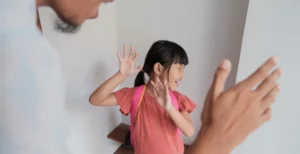Growing up, kids transform like little caterpillars turning into butterflies. Their behaviors change as they step into the world, navigating friendships, school, and new experiences. For parents and caregivers, helping them make sense of it all can feel like a rollercoaster. We humans are social creatures at heart, wired to connect and care. This journey isn’t just fascinating; it’s a challenge.
Think about it – as kids learn the ropes of socializing, they might:
- Struggle with making buddies
- Feel nervous meeting new people
- Find sharing tough
- Get confused about what’s “cool” in a group
- Have a hard time following rules
- Wonder what others feel and want
- Figure out how to balance their own feelings with the world’s demands
In this daily whirlwind of home, school, and play, kids need tools to build bonds, handle tricky situations, and protect who they are.
Apologies: What’s Behind “Sorry”
We all know the importance of saying “I’m sorry,” right? It’s like fixing a broken toy. But there’s more to it. Apologizing means:
- Patching up relationships
- Understanding actions have consequences
- Taking responsibility for what we do
Sounds good, doesn’t it? Yet, kids sometimes won’t apologize, even when we tell them to. Maybe they can’t quite explain why they did something, or they don’t get why “sorry” matters. Especially the little ones – they’re still learning!
The Problem with Forced Apologies:
Ever seen a kid say “sorry” because they’re told to, not because they mean it? Yep, that’s a thing. When kids say sorry without getting why, they might think pleasing others is more important than understanding what happened. It’s like they’re stuck with puzzle pieces they can’t fit together. They might even think everything’s their fault.
Nudging Them in the Right Direction
So, how can we help? Let’s try this:
- Check the Scene: Get the whole picture before you jump in.
- Hear Them Out: Ask how their day went, and what’s bugging them. Let them talk.
- Ask, Don’t Tell: Before you bring up apologies, ask them how they’d make things right. Their ideas matter.
- Explain the Why: Apologizing isn’t just words. It’s like fixing a bicycle chain – it makes things work again. Tell them why it matters.
- Be Real, Be Kind: Kids aren’t “bad” for making mistakes. Show them it’s okay and they can learn.
The journey of saying sorry isn’t just about the words. It’s about understanding why and how, and making things right with a heart that means it. Let’s help kids paint their own picture of what “sorry” really means.



